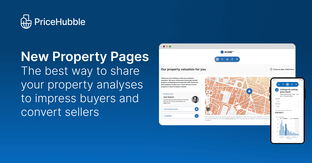The global pandemic has also greatly accelerated the digital transformation of the notary profession. As legal officers of public authority, notaries had no choice but to keep working during the first lockdown. This meant they had to adapt to the unprecedented situation and find new ways of working. Thanks to decrees from the Ministry of Justice, they were authorised to use various digital solutions: electronic signatures, remote consent collection, electronic authentic deeds and signing ceremonies over video call. However, one of the key concerns with regard to these new digital tools is how to facilitate transactions without undermining the security of notarial acts.
The challenges and concerns for notaries
Historically, notaries have always played an essential role in real estate transactions, especially in rural areas where notary offices were few and far between and thus key to communicating sales. But the arrival of the internet and the emergence of large advertising platforms significantly reduced this role as an intermediary. As Mr Texier explains, the challenge comes in “centralising and correctly sharing information. We often see the same listings on different platforms, which is not always a token of quality.”
For notaries, unlike real estate agencies, acting as an intermediary is secondary to the main essence of their profession, which is the deed of sale. As Mr Texier adds: “each office takes a different approach, which can be seen in the fact that intermediation fees aren’t regulated." Given their profession and training, notaries who perform this role take a much more far-reaching and legal approach to the transaction than real estate agencies. Before selling a property, a notary will be sure to carry out a compliance analysis, which can impact the property’s valuation. This expertise enables notary offices to identify early on any potential issues with the transaction and minimise legal non-compliance during the sale.
How technology and property data has transformed notary services
There are two databases that notaries in France use when providing intermediation services: Bien for transactions within Paris, and Perval for transactions outside of Paris. Mr Texier, who uses the Perval database in his line of work, explains how it is capable “of seeing precisely into the past”. In addition to house and apartment sales, Perval also displays agricultural land and other buildings.
Whenever a transaction is completed by a notary, a copy is stored in the databases, which are managed by the French Superior Council of Notaries (CSN). Mr Texier specifies that “no private data is stored in the database”. Nevertheless, they give precise information about the transaction, while also centralising data and creating national statistics with:
- Prices per m² in France;
- Data on property sales;
- Characteristics of each property: number of rooms, habitable surface area, existence of a balcony/parking place/terrasse and energy label;
- Pivot tables.
Information is collected quarterly, offering up-to-date market information that, as Mr Texier highlights, “complements our other tools and allows us to provide better services and analyses to our clients.”
Digital tools in notary offices
Notaries must serve as experts in their field, and digital technology offers the means and instruments for them to exercise this expertise.
Every day, Mr Texier uses PriceHubble’s digital tools and real estate solutions alongside the Perval database to help him:
- Value a property for an endowment or a divorce;
- Offer advice during real estate negotiations;
- Manage assets.
In his opinion, it is important to support an analysis and valuation with data from similar properties. PriceHubble’s solutions make it possible to “confirm, create, specify and convince. They ensure I can be more effective in the service I provide clients”. He also highlights the value of such a tool in the event of litigations that require a property valuation.
The personalised PDF report that is generated offers definitive proof of the elements used to make the valuation and provides a snapshot of a property’s situation at a specific moment in time. Moreover, the tool also enables Mr Texier to perform a quick initial valuation report for a property outside of his geographic sector.
Depending on the type of property, the valuation provided by the solution is “very often correct, in 90% of cases”, according to Mr Texier. Sometimes it may be higher or lower,and will allow the person who performed the valuation to question the analysis that led to this appraisal.
Supporting the expertise of every notary
Mr Texier points out that property valuation tools are not “miracle workers that always give the right price”. Nevertheless, they are valuable apparatus that save notaries considerable time. They support their position as experts, at a time when their knowledge is often called into question and everyone believes they can do their own valuation online. In combination with existing databases and their familiarity with the local market and relevant laws, these tools make a notary’s valuation more legitimate. Like in many other professions, digital technology is used by notaries alongside more ‘traditional’ tools, forming a tight-knit and complementary team.
All the signs point to notaries continuing to embrace their digital transformation and develop new tools that will shape the future of their profession. In 2018, for example, the Paris Chamber of Notaries created an innovation fund endowed with €6.2 million, whose aim is to expand the range of services leveraging emerging technology such as blockchain and artificial intelligence.
Would you like to learn more about how notaries use digital technology and real estate data to better advise their clients? Visit our blog and read our articles on the digitalisation of notary services and innovations in the field. Please contact us for any questions about PriceHubble’s digital tools and solutions designed especially for notaries.






